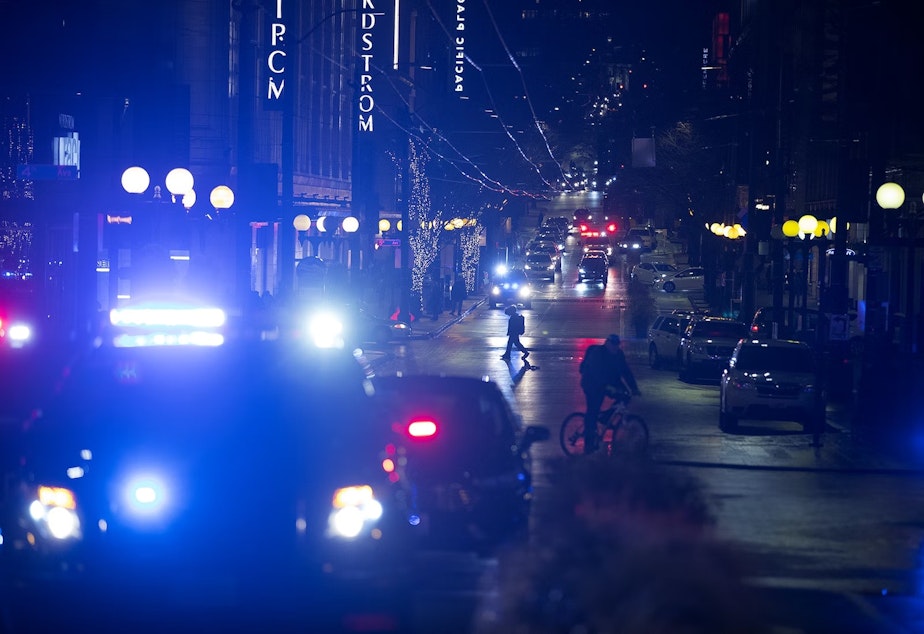Seattle plans to send more mental health specialists to 911 calls

Seattle is expanding its program that sends behavioral health specialists to some 911 calls.
Mayor Bruce Harrell’s “vision was to set up and legislate a third public safety department,” said Amy Smith, who oversees the program: police, the fire department, and her team.
RELATED: North King County cities broaden mental-health response to 911 calls
Since October 2023, the city has been piloting the program in downtown Seattle. The six behavioral health specialists respond to calls alongside police officers. So far, they've joined in on 539 calls.
Now, the city plans to put a bigger team in place to respond citywide by the end of 2024. The goal is to add 18 more responders, and three more supervisors. The program will also expand to operate daily, from noon to 10 p.m.
Sponsored
The behavioral health team currently responds to about a dozen calls each week. Most of those calls involve people who are lost or evicted, in distress, or who need clothes or shoes. Police officers also come to the scene; however, the behavioral health team can stay longer — sometimes for hours — which frees up officers for other needs.
Smith said she would like her team to respond to a lot more than a dozen calls per week.
"We get almost 900,000 calls for service (to 911)," Smith said. "If you just looked at the calls ... about 40-50% of the time, they just don’t require fire or police."
RELATED: Many 911 call centers are understaffed, and the job has gotten harder
The city’s agreement with the police union limits how many calls the behavioral health team gets. This is a point that Mayor Harrell said he plans to revisit during upcoming union negotiations.
Sponsored
Smith said what she hopes for is this: "We need a really simple system that says, 'Does this require a gun and a badge? Is there reason to believe that? Is this a fire? Does this require medical transport?' If neither, that stuff in the middle — that should be a civilian response."



